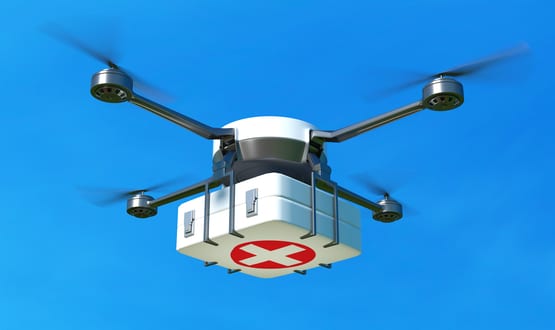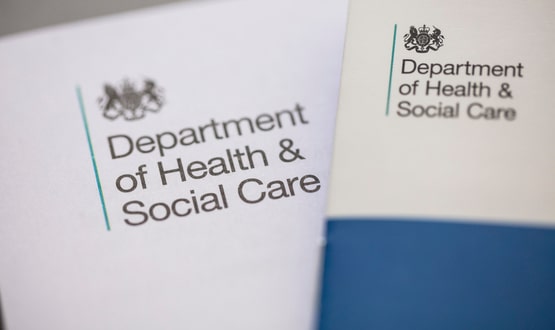NHS Covid-19 App updated to improve accuracy and notifications
- 29 October 2020

The NHS Covid-19 App has been updated to improve its accuracy in identifying close contacts.
From today, the app will be updated to better estimate distance between users to increase the accuracy of close contact notifications.
The app is the first in the world to make use of Apple and Google’s updated APIs to improve its effectiveness, according to the Department of Health and Social Care (DHSC).
It will allow for greater accuracy of how the app estimates distance and a better assessment of whether someone is at risk of having caught the virus, and therefore needs to isolate.
The updates will also see an end to ‘ghost notifications’ about potential exposure to the virus, which have caused users confusion in recent weeks.
Users had reported receiving notifications warning them of potential exposure to Covid-19 that disappear once they tried to open them.
By removing these notifications, the DHSC aims to make it clearer to users that they only need to self-isolate when instructed to do so by the app.
Gaby Appleton, NHS Test and Trace director of product, said: “The team behind the app are continually working to improve its accuracy and user experience, to make it as simple as possible to keep users and their loved ones safe.
“This update builds on that success by increasing accuracy, and also removing ‘ghost’ exposure notifications, meaning users will only be notified if they need to self-isolate.
“The more people who use the app, the better it works, so I encourage all those who have not yet downloaded the app to do so.”
Based on APIs from Apple and Google, the app uses Bluetooth technology to track time and distance between smartphone devices.
It also offers a QR code check-in capability at bars, restaurants, and other venues, designed to aid NHS Test and Trace in contacting customers with public health advice should there be a Covid-19 outbreak.
If a user comes into close contact with someone who later tests positive for the virus and needs to self-isolate, the app will send a message stating it has “detected that you have been in contact with someone who has coronavirus. Please stay at home and self-isolate to keep yourself and others safe”.
Since its launch on 24 September is has been downloaded 19 million times, according to DHSC figures.





6 Comments
In relation to my first comment, I found it does tell you which postcode you was exposed. The postcode where I was allegedly exposed is where I work. No one in my office was diagnosed as positive (we get tested weekly), nor was any other staff member with the app asked to self isolate, and the only places I visited on the proposed exposure date was to a pharmacy and a newsagents, both of which I was in for no more than 5 minutes. All staff and shoppers wore masks, I did not come in to close proximity of them – social distancing, so it doesn’t make sense as to how ‘I was exposed and needed to isolate’. The app if working accurately would be great but for now it remains off.
I feel the app is a total scam as My wife and daughter was tested positive for covid-19 and the app has still not told me I need to self isolate
I think it’s a scam too as I received a notification 20 mins ago and I’ve been asleep for the last 12 hours
I was notified 4 days after ‘exposure’ and told to isolate for 10 days, so if your family has only just been told their positive it may be another 4 days before you are notified, but ‘as the gov says’ you need to isolate for 14 days now 🙁
Why doesn’t the app let you know what area you got exposed to the virus. The only 2 places I attended was either a supermarket or the opticians. And the only person I was with for over 15 minutes was the optician herself. So could it be she has since tested positive? And also how comes the app tells you to isolate for 10 days but when you click on the isolation details it tells you to isolate for 14 days. I’m so confused?
Why won’t the app tell us where abouts we got exposed? When we’ve been told to self isolate! Because I want to know this, incase its got it wrong, as I think its happened to me…why can’t we know what shop, village , superstore, pub…etc where we got close to someone? Because I don’t believe its accurate!
Comments are closed.